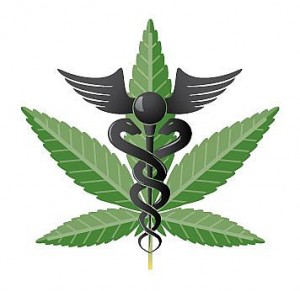States Lobbying for Relaxed Federal Marijuana Laws
For decades, there have been many prominent organizations calling for the nationwide decriminalization, or full legalization, of marijuana. Full legalization of marijuana is no longer considered a fringe position, with some polls suggesting that nearly half of all Americans believe that marijuana should be legalized for both recreational and medical use. And a solid majority believes it should be legalized for medical use only.
Yet fewer than half of the states in the U.S. permit individuals to use marijuana medicinally, and none have completely legalized it. The cultivation, sale, possession, and use of marijuana remain completely illegal under federal law.
Under the U.S. Constitution, federal law is “supreme” over state law, meaning that federal authorities can arrest people for violation of federal marijuana laws, even if what they’re doing is legal and sanctioned by the laws of their state. For the owners of medical marijuana dispensaries in these states, this conflict between federal and state law puts them in a legal gray area.
When he was elected, President Obama stated that the Justice Department would not make it a priority to prosecute people who grow, sell, or consume marijuana in accordance with their state’s medical marijuana laws. However, this appears to have changed over the last year or so. According to this article, the Obama Administration has begun targeting businesses necessary for dispensaries to operate, like banks, in order to undermine the medical marijuana industry without actually prosecuting patients.
However, the governors of at least two states are adding some new political muscle to the debate about medical marijuana: the governors of Washington and Rhode Island have begun lobbying the federal government to reclassify marijuana. Currently, the federal government classifies marijuana as a “Schedule I” drug, meaning that (according to the feds) it has a “high potential for abuse, and no currently accepted medical use in treatment in the United States.” All drugs in this category are illegal. Other drugs in this category are heroin, LSD, and GHB (a sedative sometimes used as a date-rape drug).
These governors, along with many drug-reform advocates, are strongly lobbying Congress to move marijuana into “Schedule II.” These are drugs which have a high potential for abuse, but also have limited medical applications. They may be prescribed by doctors to treat approved medical conditions, but they are still tightly controlled, and are generally illegal to use without a prescription. Schedule II drugs include morphine, cocaine, and methamphetamine. In case you haven’t put two and two together, this means that marijuana is actually more tightly controlled than those drugs.
 In case you’re not familiar with cocaine, methamphetamine, and morphine, those drugs are generally regarded as being far more dangerous than marijuana (all of them can cause a fatal overdose, while the main psychoactive ingredient in marijuana has no known lethal dose). They’re also widely regarded as being far more addictive than marijuana.
In case you’re not familiar with cocaine, methamphetamine, and morphine, those drugs are generally regarded as being far more dangerous than marijuana (all of them can cause a fatal overdose, while the main psychoactive ingredient in marijuana has no known lethal dose). They’re also widely regarded as being far more addictive than marijuana.
Given the fact that most U.S. states are facing huge budget deficits, one would expect their governments to be seeking new sources of tax revenue. One commonly-proposed source of revenue is the legalization of marijuana. This would allow states to impose taxes on marijuana sales, and it would make it far more likely for sellers of marijuana to pay income taxes on all of the money they earn in the trade, rather than attempting to hide it. And if medical marijuana were fully legalized and taxable, public opposition to taxing it at fairly high rates would probably be minimal, making it one of the only politically-safe new taxes that a government could impose.
On top of that, the costs of enforcing criminal laws governing marijuana, and incarcerating non-violent marijuana offenders, would be eliminated.
I’m honestly not sure if marijuana should be fully legalized for recreational use (though if it remains unlawful, punishments for small violations of these laws should be minimal). However, I see absolutely no reason why it should not be reclassified as a Schedule II controlled substance. This would allow the federal government to tightly regulate it, and prohibit its recreational use, while still allowing doctors to prescribe it according to their medical judgment.
Many doctors now believe that the active ingredients in marijuana have many unique pharmacological properties, which make it highly effective at treating the side effects of chemotherapy, vastly improving the quality of life of some cancer patients.
The current legal situation with marijuana is untenable, however. By forcing patients seeking medical marijuana, and those selling it, to operate in a legal gray area, a criminal element is necessarily drawn to the medical marijuana industry. Also, because of this, many people have come to view the entire medical marijuana system as an excuse for people to get high legally, without fear of arrest. This is unfortunate, as it exposes those patients who can genuinely benefit from medical marijuana to the same scorn.
Hopefully, someday, medical marijuana’s legal situation can be clarified.

Comments